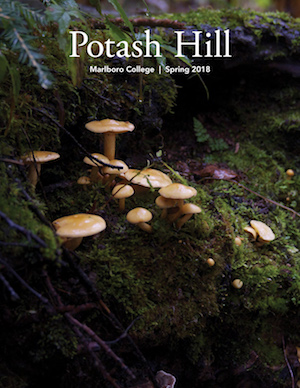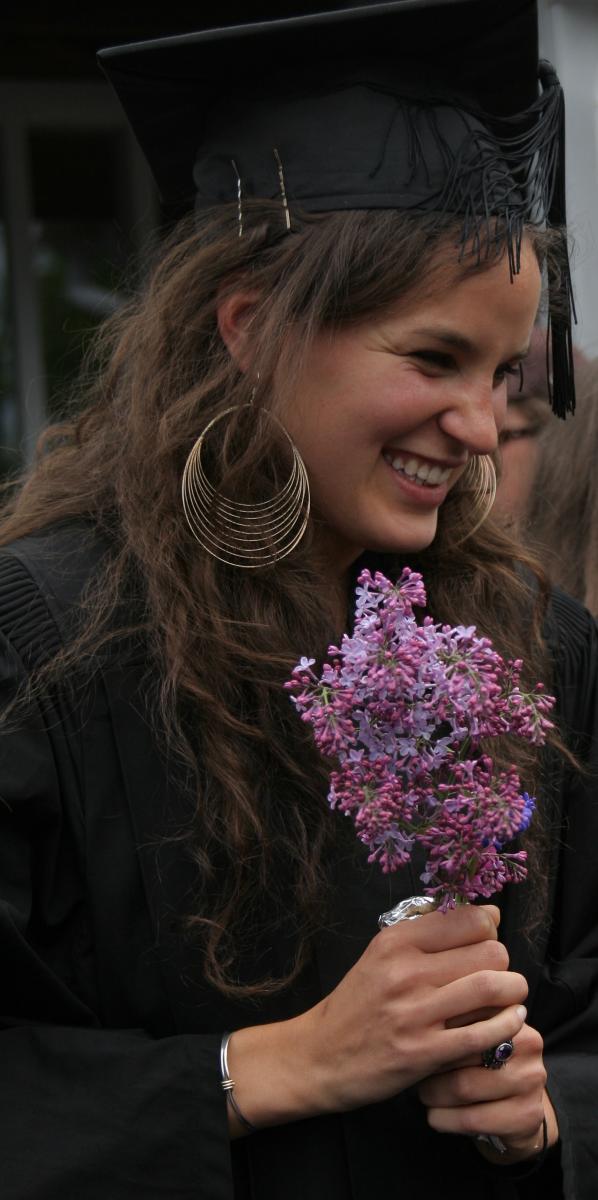Letters
 Potash Love
Potash Love
The Spring 2018 edition of Potash Hill is an extremely impressive effort. The photos, the layout, the choice of subjects, and the quality of writing combine to create a very engaging work. Well done!
—Peter Zamore ’74, trustee
Excellent edition, especially Jenny Ramstetter’s article on the successful inclusion of a “forever wild woods” in Marlboro’s reserved forest system. All spellings seem to be in order except for George Weir ’71, the forester who chaired the committee to explore consequences of withdrawal from Vermont’s Use Value Appraisal program. Even Pieter Van Loon ’88 is spelled correctly. Perhaps a safe ruling in George’s case might be “i before e, except after George W.” —John Spicer (dad of Beth Spicer ’80 and Meg Spicer ’86)
The current issue of Potash Hill arrived and has been devoured. As I hope I have told you before, it is probably the best alumni magazine out there—beautifully designed and a great read. Keep up the great work.
—Will Morgan, friend
Cultivating Connection
As we should, we make a great deal out of community at Marlboro College. Let’s continue doing so. But from our point of view what is the most essential, distinctive, and powerful thing about the work we do here is something different. Remarkably, the characteristic of which we speak is largely cultural, not structural. As such, it is fragile and needs constant cultivation. It is certainly supported by our community work, but it deserves a different kind of attention.
 Here is what we think we will miss most about teaching. In classes, tutorials, and Plan work, faculty and students at Marlboro form bonds of connection, rigorous effort, and caring that are beyond anything that we have experienced working at seven other, otherwise prestigious colleges. It is that intimate connection built of daily contact and constant refiguring over four years that allows our students not only to complete, but to excel at the immense task of the Plan of Concentration. It is matched by skilled, dedicated staff members and enhanced by a student culture of collective effort. This has been transformative for us and many of our students. All of you know what can happen when the best parts of what we are describing come into alignment. Protect it, renew it, and improve it as Marboro’s most important, powerful, and moving characteristic.
Here is what we think we will miss most about teaching. In classes, tutorials, and Plan work, faculty and students at Marlboro form bonds of connection, rigorous effort, and caring that are beyond anything that we have experienced working at seven other, otherwise prestigious colleges. It is that intimate connection built of daily contact and constant refiguring over four years that allows our students not only to complete, but to excel at the immense task of the Plan of Concentration. It is matched by skilled, dedicated staff members and enhanced by a student culture of collective effort. This has been transformative for us and many of our students. All of you know what can happen when the best parts of what we are describing come into alignment. Protect it, renew it, and improve it as Marboro’s most important, powerful, and moving characteristic.
—Tim Segar and Cathy Osman, retired visual arts faculty
Biology as Best Seller
Science dragged me in. I thought, I was a writer; I was a poet; I would have a creative career, goddammit. I brought that skepticism with me to Marlboro, and then I met Bob Engel. It was during one of the first lectures that Bob gave in General Biology.
It was about something really basic and normally quite boring—I want to say the Krebs cycle—but Bob was telling a story, and I could see characters in this Krebs cycle, or whatever it was. And his eyes were lighting up as he was telling us this amazing narrative about it.
And suddenly a light bulb went off in me, and I realized there are stories everywhere in science. I just went down this rabbit hole with it, and I’ve never gone back. I’m still telling stories about science, and I’d like to just say: Bob, it’s your fault, and thank you.
—Molly MacLeod ’08 (pictured, right)
See more memories about the late Bob Engel, beloved biology professor. Do you remember your light bulb moment? Share it with us at pjohansson@marlboro.edu.
